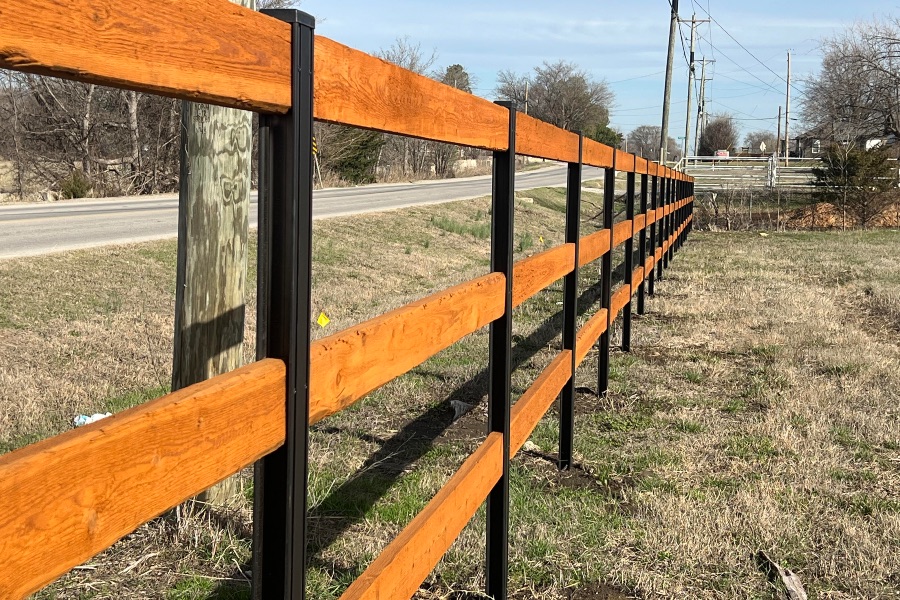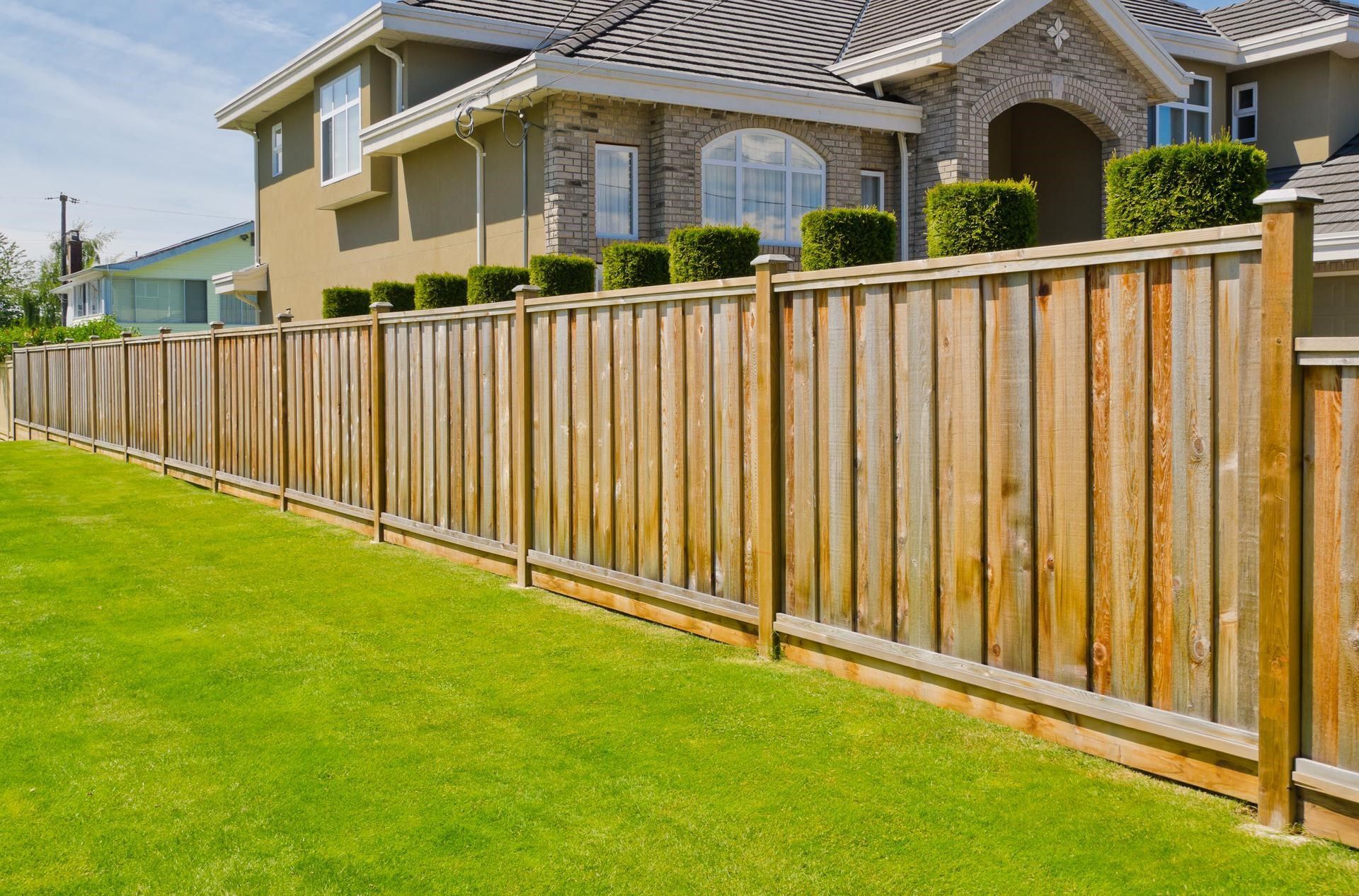All Categories
Featured

When intending a brand-new fence for your building, it's easy to concentrate on the fundamental expenses-- materials, installment, and labor. Nonetheless, numerous surprise expenses can considerably impact your overall spending plan. If you're not prepared, these added expenditures usually go unnoticed yet can rapidly include up. When budgeting for your fence task., here's an overview to some of the most usual covert prices to take into consideration.
- Allow Costs and Legal Requirements. Before you begin excavating, it is very important to inspect if your location calls for a license to set up a fence. Several towns have zoning laws that control fencing product, elevation, and placement, particularly if you're developing near a residential or commercial property line or in a community with a Property owners' Association (HOA) These regulations make sure the fencing fulfills local requirements, however they additionally feature connected costs.
Cost array: $50 to $500, relying on your area and the intricacy of your project. 2. Fence Elimination and Disposal. If you're changing an existing fencing, elimination and disposal of the old structure is an added expenditure that can conveniently be neglected. Fence removal commonly entails disassembling the old fence, hauling away the materials, and dealing with them correctly. Disposal costs can differ, particularly if the old materials require unique handling, such as treated timber or metal.

Cost variety: $2 to $10 per direct foot for elimination and disposal, relying on the materials. 3. Land Preparation and Excavation. A completely level installation website is not constantly guaranteed. If the land where your fence is being set up is uneven, rocky, or covered in vegetation, it might require to be cleared or leveled. Grading or excavation costs can contribute to your overall job costs, specifically if you're mounting messages in hard-to-dig dirt. Inclines or compacted soil may call for specific devices and more labor.
Cost array: $300 to $2,000, depending upon the website's problem. 4. Energy Line Recognition and Adjustments. Before excavating, it's vital to guarantee that no below ground utilities, like water, gas, or electrical lines, will certainly be disrupted throughout the setup. Many specialists will speak to utility companies to note these lines, but there can be additional prices if modifications are required to prevent destructive existing framework.
Expense array: $100 to $500, depending upon whether modifications are needed. 5. Customized Qualities and Upgrades. While your basic fencing might include conventional materials, you may want to include custom attributes like gateways, attractive panels, or integrated lights. Automatic gateways or safety systems are particularly pricey and call for professional installment. Including these additionals raises the overall price of your fencing, so see to it to factor them into your budget.

Expense array: $100 to $1,500+ for entrances or attributes, relying on size and complexity. 6. Distribution and Transportation Costs. Depending on where your products are sourced, you might be charged a different shipment charge for delivering the fencing products to your residential or commercial property. This is specifically typical with heavy or big orders, such as timber panels or metal secure fencing. Distribution prices can likewise differ based on the distance between the distributor and your area.
Price variety: $50 to $300 for shipment, depending upon range and the quantity of products. 7. Maintenance Expenses Over Time. Several kinds of fences, particularly wood fences, require continuous maintenance to stay in excellent condition. Normal jobs like staining, securing, and cleansing will help extend the life of your fence. Some products, such as plastic or metal, might be much more low-maintenance however can still incur prices for repair services or substitutes if damaged.
Yearly price array: $50 to $300 for maintenance, depending on product and environment. 8. Weather condition Hold-ups. Mother Nature doesn't constantly accept your timeline. If your setup is delayed by poor weather condition, such as rain or extreme warm, you might encounter additional labor costs if workers need to return to complete the task at a later time. Hold-ups can also expand the task timeline, pushing back when the fence is all set for usage.
Expense array: Variable, depending upon for how long the hold-up lasts. 9. Home Line Disputes. Setting up a fencing near your residential or commercial property line can sometimes result in conflicts with next-door neighbors. It might be required to hire a specialist land surveyor to confirm the residential or commercial property line before setup if your border is vague. This extra step ensures you won't mistakenly trespass on your neighbor's land, however it features added expenses.
Cost variety: $400 to $1,000 for a residential or commercial property study, relying on your place. 10. Soil and Ground Conditions. Specific dirt kinds can present difficulties during installation. If your residential or commercial property has rough, compacted, or clay-based dirt, excavating openings for blog posts can be a lot more hard, needing specific tools or even more time to finish. Harder ground conditions may also require the use of other or concrete enhancing materials for added security.
Expense range: $100 to $500 for tools or added labor. Verdict. When budgeting for a new fencing, it is necessary to bear in mind that the initial cost might not be the only expense you'll run into. Authorizations, site preparation, old fencing elimination, utility modifications, and custom functions can all build up. Additionally, continuous maintenance and the opportunity of weather condition hold-ups or residential or commercial property line issues should be considered when approximating your overall spending plan. By representing these concealed expenses, you can ensure that your fencing job remains within budget plan and is completed without unanticipated monetary surprises.
Latest Posts
Explore Premier Vehicle Maintenance Care in Chicago – Quality Service Today
Published en
1 min read
Learn How WyHy FCU Maximizes Your Savings on Financing and Accounts
Published en
1 min read
Take Advantage of Limited-Time Auto Repair Offers in Chicago at Montclare Auto Repair
Published en
1 min read
More
Latest Posts
Explore Premier Vehicle Maintenance Care in Chicago – Quality Service Today
Published May 27, 25
1 min read
Learn How WyHy FCU Maximizes Your Savings on Financing and Accounts
Published May 27, 25
1 min read
Take Advantage of Limited-Time Auto Repair Offers in Chicago at Montclare Auto Repair
Published May 24, 25
1 min read